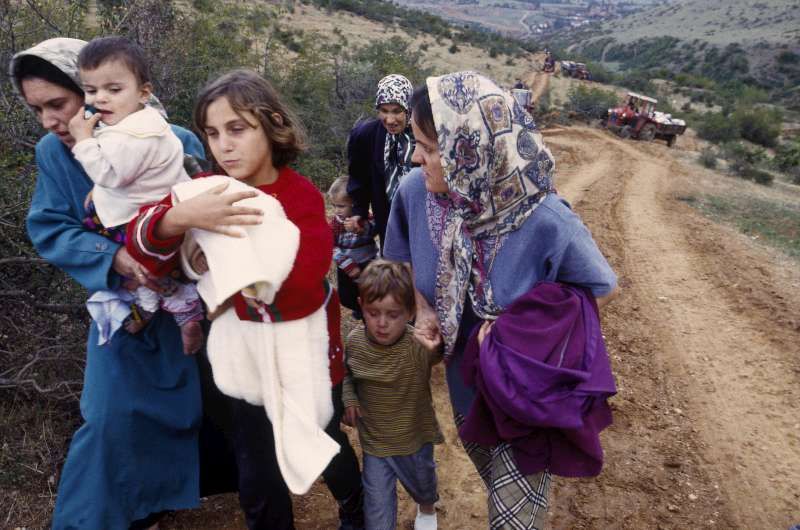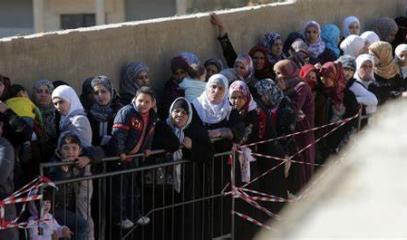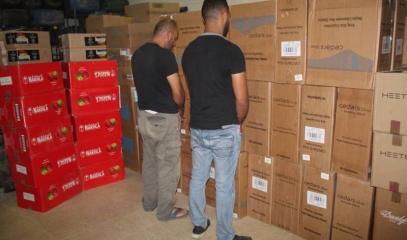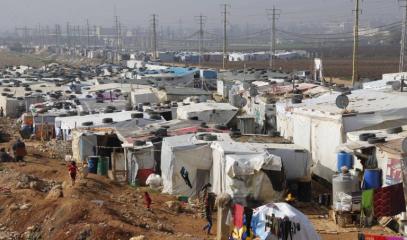Syria’s poverty fuelling an 'alarming' wave of migrants, sparking protests in Lebanon
The Lebanese are alarmed by the illegal flow of people across the border paying up to US$ 100 to smugglers. The army turned back more than 1,500 people in just one week in late August, but the border is too long for proper monitoring. Opposition MP Melhem Khalaf warns of the “risk of asphyxiation” of Lebanon.
Beirut (AsiaNews) – Hundreds of Syrians are fleeing poverty along dozens of routes and paths between Syria and Lebanon, taking advantage of the implosion of Lebanese institutions; alone or with their families, some are paying US$ 100 to smugglers in order to enter Lebanon illegally.
Moving on motorbikes, they vanish into the wilderness, in the north and east of the country, where the 350-kilometre-long Lebanese-Syrian border becomes a blur, sometimes crossing the same village.
The Lebanese army recently intercepted a lorry with illegal migrants, pretending to carry stones, at an illegal crossing point on the border. This small success pales against the army’s inability to monitor all 350 kilometres of land border through which migrants infiltrate.
Displaced People Minister Issam Sharafeddine, who sounded the alarm in the face of this unprecedented migration, said that in the space of a week in late August, the Lebanese army turned back an estimated at 1,550 illegal immigrants (army press releases of 23 and 28 August).
About 8,000 people were detained in August, a figure not officially confirmed by the army, some of whom carried weapons, the minister noted yesterday.
It is widely believed that this worrying trend is gaining momentum as Syria, strangled by US sanctions, sinks further into a socio-economic morass. Likewise, it is generally agreed that Islamist groups like the increasingly active Islamic State (Daesh) will exploit this new wave of irregular migration to infiltrate Lebanon.
According to former Interior Minister Marwan Charbel, these illegal immigrants come mainly from northern and central Syria (Idlib, Deir el-Zor mainly), and are escaping dire economic conditions aggravated by the lifting of fuel subsidies. The latter already sparked to protests among Druze in the south and might make things unbearable with the arrival of winter.
While some of this human flow will end up on boats heading to Europe, others hope to register as displaced people with the United Nations High Commissioner for Refugees (UNHCR) and thus receive aid, Minister Charbel explained.
“They will not reach their goal, nor will they find work,” the minister explained. “The Lebanese are increasingly reluctant to hire Syrians or accept them as competitors in certain professions, like private schools, which are facing a major crisis after losing 20 per cent of their teaching staff, a figure reported yesterday by the secretary general of Catholic schools.”
Alongside these legal or semi-legal tools to integrate, displaced Syrians have resorted to roundabout if not outright illegal means to regularise their situation, like fake birth certificates issued by corrupt mayors in exchange for three million Lebanese pounds (about 30 dollars), or even "adoption" of children by poor Lebanese families, forged papers, etc.
Faced with the wave of illegal entries, MP Melhem Khalaf has led the protest, speaking out against the crisis. According to him, these entries represent "a risk of asphyxiation" and destabilisation for Lebanon.
“One has to understand and read the data related to this issue," he said. “Is it limited to Lebanon, or does it affect other countries bordering Syria, like Turkey and Jordan? Behind the visible developments, are there facts we don't see?” he asked.
The lawmaker, who has been holding a sit-in inside parliament for almost a year, is demanding the immediate formation of a crisis unit to vet the matter and the measures likely to stop it, "far from any form of exclusion or xenophobia".
At the same time, he is urging the army to provide the government with any data it has on the regions of origin of illegal immigrants and their ages.
Lastly, Mr. Khalaf believes that Lebanon should not face this wave alone, but coordinate its containment action with Syria, the UN High Relief Committee, and the international community.
11/08/2017 20:05










.png)










